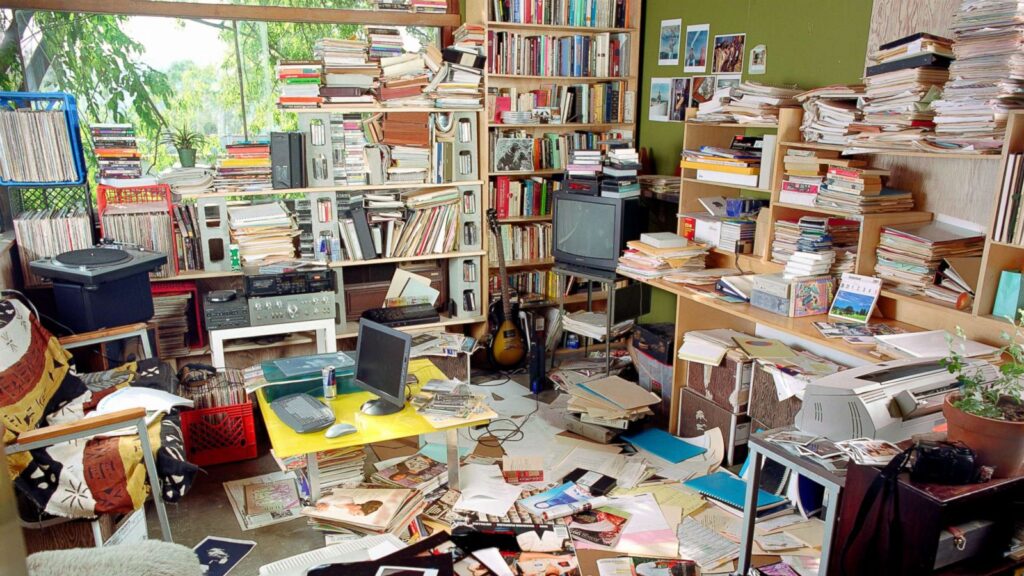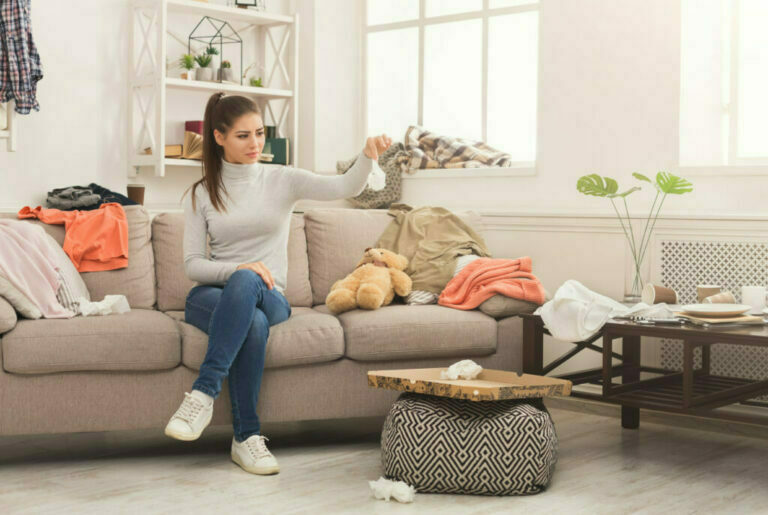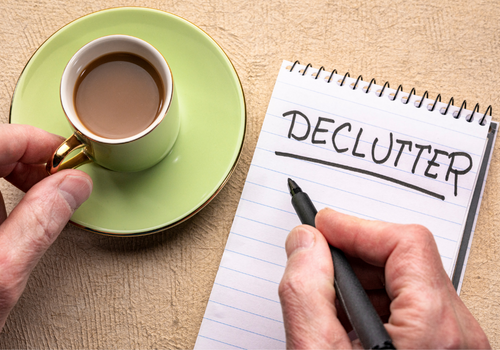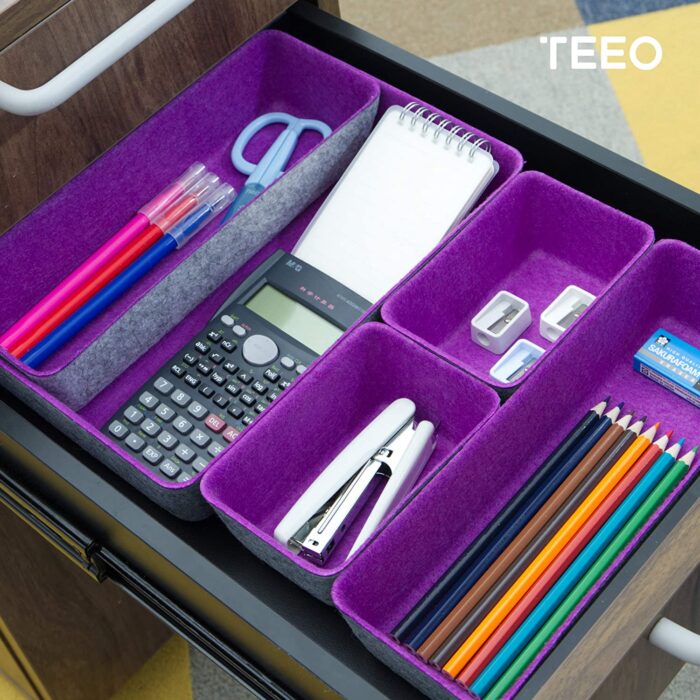How to Declutter Your Room
This blog post is about decluttering your room, something many people struggle with. To help you get started on this venture, I’m going to offer some tips that will make the process easier.
You should start by taking everything out of drawers and closets so that you can see what’s truly in there and decide if it still has a place or not. Get rid of anything that doesn’t serve an important purpose and make sure that anything you do keep has a designated spot so it doesn’t accumulate.
I hope these tips will help take your house back from the clutter!
What is clutter?
Figure out what qualifies as clutter. “Other people can’t decide what is clutter for you,” says Cynthia Townley Ewer of Richland, Wash., the editor of the website Organized Home.
Peter Walsh is a professional organizer and used to host the TV show Clean Sweep. He divides clutter into two general types: visual and physical. “Memory” clutter is stuff that reminds us of important events, like old school programs or newspaper clippings. “Someday” clutter refers to items you won’t toss because you think you might need them someday.
Walsh says that clutter control is about balance. If you have too much stuff, it will drag you back to the past or pull you into the future, and then you can’t live in the present.
Clutter, control, and your health

Clients who are called to a cluttered bedroom and home office say that their energy is drained; they can’t find things. It’s beginning to interfere with important parts of life – such as getting to work on time or navigating stairs.
“A lot of people express that they are overwhelmed,” says Lynne Gilberg, a professional organizer in West Los Angeles. “They become nonfunctional and nonproductive,” she says. That’s when they call her in desperation.
Clutter is bad for your health. Too much clutter can be a fire hazard. Dust, mold, and animal dander collected in a cluttered room are bad for allergies and asthma.
People use words like “suffocating” and “I can’t breathe” when they see clutter, says Walsh. Clutter can be a physical manifestation of mental health, says Walsh. People who are overwhelmed with “memory” clutter may have an undue preoccupation with things in the past and become depressed. He says that people can’t throw out physical items because they worry they will need them in the future, giving them unnecessary anxiety.
Why is decluttering so powerful?
Decluttering is so powerful because it can have a huge impact on our lives both physically and mentally. Often, we don’t declutter because we feel like it’s too hard or that it will take up too much of our time. However, once we start decluttering, we often realize that it’s not as bad as we thought and that the benefits far outweigh the effort required. Fear of being overwhelmed or messy often keeps us from starting to declutter in the first place, but if we can push through that fear, we will be much better off. Additionally, people often don’t finish decluttering projects because they get overwhelmed or lose motivation- but if you set small goals and take things one step at a time, you can be successful.
People tend to keep things because of a few different reasons. One reason is the fear of not being able to have something and needing it. This often leads to clutter. People may also feel guilt about getting rid of something, either because they think someone else will be sad or because they are instigated by another person. It can be difficult to explain to others that something they gave you is not useful. But by becoming consciously aware of these obstacles, you can start to clear them out and declutter your life bit by bit.
When is clutter a problem?
Clutter can be a major problem when it starts to impact your daily life negatively. This can include stress from trying to keep up with the mess, embarrassment at having a cluttered home or office, health complications from being unable to find things or from stress.
What does clutter do to your mental health?
We all know that feeling of being overwhelmed by the amount of stuff we have. Whether it’s a messy room, a crammed closet, or a pile of paperwork on our desk, clutter can be a big energy zapper and cause other health complications.
Clutter makes people feel embarrassed, stressed, and overwhelmed. It can also lead to anxiety and depression. If you’re someone who struggles with mental health issues, decluttering your room can be a helpful way to improve your mood and overall well-being.
Here are some tips for decluttering your room:
1. Start small. Don’t try to tackle everything at once. Pick one space to focus on and go from there.
2. Set aside sometime each day to declutter. Even just 15 minutes can make a difference.
3. Donate or sell items you no longer need or want. This will help you let go of them emotionally as well as physically.

Why do you have a clutter problem in the first place?
Clutter can be a very difficult problem to tackle. It can be caused by many different things, and it can lead to feelings of helplessness and overwhelm. However, it is possible to overcome these feelings and declutter your space.
You own one too many things
This may be the most undeniable reason for any kind of clutter, but it is also typically the one we encounter the most difficulty with. It’s hard to find clothes that we want to wear even though we have a cornucopia of good outfits in our closets, so we go shopping for new ones. We opt to buy new tools because it is difficult to find screwdrivers in a garage full of stuff. We enjoy finding good buys at garage sales, so we keep every little thing in our already-packed basement until we eventually find the perfect place for it in our house. We often don’t want to throw away things because we have emotional attachments to them. One too many of something will always result in more clutter.
How to work on it:
Think about how many of the items you need to keep in your household. Ask yourself, “how many do I really need?”
Trying to organize the unnecessary clutter you have is futile, you cannot and you will not get anywhere with it. The only solution to this problem is to get rid of what you don’t need right now, and what you will not need in the next couple of weeks. Start with getting rid of at least 10 items a day. If you have an emotional attachment to the things you do not have space for, try to find ingenious ways to retain the memories without the need to keep every single thing on display.
You are in the midst of transitioning
Whenever you try to change your routine, experience a stressful time, end or start a new work, have a baby, go through financial difficulty, move to another home, get sick or have any other life-altering experience. Clutter multiplies.
We have the tendency to let stuff pile up because we think we will have the time to sort everything out once the situation “settles down.”
How to work on it:
Start with something small. Ask yourself, “how often do I use it?”
Do not waste time waiting for optimal circumstances. For example, life is an ongoing series of changes, so look for simple means to get stuff in order even during the hectic seasons. Focus on the parts that give you the most frustration every day, like your closet or dresser.
Make this day a bit better by taking a few minutes to declutter a bedroom.
You do not have an organizational systems
If you are lost on where to place something, you’ll end up setting it down anywhere. That storage space will eventually become a magnet for more clutter.
How to work on it:
Analyze the issue and address it. Ask yourself, “when was the last time I used this?”
Stop and think when you notice yourself putting things in a cluttered spot. Why do you keep putting things there rather than putting them back where they belong? There are probably piles of bills on the bedside table because you do not have a recycling or a bill-paying system. There are probably papers and coats on the kitchen table since your kids do not have a specific place to store and organize them.
After you analyze why the problem is happening, come up with a new method to fix it.
How can you keep your home decluttered for good?

Decluttering your home can be a great way to improve your quality of life. Not only will it make you feel better mentally, but physically as well. It can also help reduce stress levels in your life. The best part is that anyone can do it! There are plenty of decluttering tips and tricks out there on how to declutter your home, so start today!
De-clutter regularly
Set aside sometime each week to declutter your home. This will help you keep on top of the messy bedroom and prevent it from getting out of control.
Be ruthless
When you’re decluttering, be ruthless in getting rid of things that you don’t need or use. If something doesn’t bring you joy, get rid of it!
Don’t be a hoarder
One of the main reasons homes become cluttered is that people are hoarders. If you find yourself holding onto things that you don’t need or use, it’s time to let them go.
Keep it tidy
Once you’ve decluttered your home, make sure to keep it tidy on a daily basis. Declutter meaning putting things away after using them and not leaving any bedroom clutter lying around.
Get everyone on board
It’s important to get everyone in your household on board with the decluttering process. Otherwise, all your hard work will be undone!
How to control clutter?
Clutter can be a challenge to control, but it’s manageable. There are strategies and tools you can use to get started. Clutter is destructive and can take over a person’s life. It’s important to tackle your clutter head-on and regain control of your entire room.
Start with a vision
Instead of handing his clients a to-do list and a schedule to get the clutter in control, Walsh first asks his clients to ask themselves: “What is the vision for the life I want?” That becomes the criteria for what you decide to keep.
You may need to put the TV or computer in another room if you want the bedroom to be a calm, restful place to spend time with your partner.
Instead of asking, “What do I need for the house?” ask, “What do I want from this room?” You’ll soon figure out what’s a clutter and what’s not.
The decision dilemma
Work on your decision-making skills, and you’re on your way to getting rid of clutter. “What clutter is, is ducking decisions or refusing to make them,” Townley Ewer says. So when the mail comes in, for example, decide right then whether to keep or throw it out. “Do bills online so there’s less clutter in the house,” suggests Ewer. Toss old magazines, and know that you can look up articles online or go to the library if you really need them later.
When something comes in, something must go out. If you buy new clean clothes, part with some old ones. Ewer did that to combat her “twinset habit.” If she buys one twin set, she will donate two old ones. “Once I started doing that, I stopped buying them,” she says.
A little at a time

Cluttered clients often think they have to clean the entire house in a fell swoop, but clutter control isn’t all or nothing. “Create a pocket of order,” suggests Cindy Glovinsky, MSW, a psychotherapist and professional organizer in Ann Arbor, Mich. Start small: Tackle one room or even one bookshelf at a time. Cleaning the clutter from drawers? Don’t dump the whole dresser drawer. It’s too overwhelming. Instead, take out items that can be thrown away, then things you can give to Goodwill.
A declutter checklist of parameters can help when you’re deciding what to keep and what to throw out. For instance, when cleaning your closet, you might decide to throw out stained or torn clothing, dirty clothes you haven’t worn for six months, or items that don’t fit.
Once you’ve learned how to get rid of the clutter, shift to maintenance mode. Make an appointment with yourself for clutter maintenance, Gilberg says. “Literally write it on the calendar.” If you keep your calendar electronically, set up clutter control as a recurring appointment.
The benefits of decluttering
As people start to control the clutter, they start taking better care of themselves. Their attitude improves, maybe because they’re not rushing around so much looking for car keys buried in rubble or bills that are misplaced.
“As people clean, their energy seems to rise.” And “once the clutter is cleaned up, some people begin to work on other issues.” A client of hers, a professor unhappy with their job, got a better position once the clutter was under control. Another, so overweight they were housebound, joined an online self-help group after the clutter was cleared away.
“I think when people see they can have an effect on their lives in one space, they begin to take action in another space of their lives,” Glovinsky says.
What are some tips for decluttering your home?
There are a few key things to remember when decluttering your home. First, you need to view your home as if you were seeing it for the first time. This means getting rid of any preconceived notions about what should and should not be in your room. Second, it is helpful to have a friend or family member come over and help you make decisions about what is cluttered and what can be cleaned up. Finally, these tips provide a general guide on how to declutter your home slowly and effectively.
Get rid of anything you haven’t used in the past year
If you’re not happy with an item, get rid of it. If an item has been unused for 6 months or more, it should be thrown away.
Donate or sell items that are in good condition
There are a few things you can do with items you no longer need or want: donate them, sell them, or throw them away. If you choose to donate items, make sure to do so at a reputable organization that will put the items to good use. If you choose to sell items, there are a number of ways to do so, including online platforms and garage sales. Finally, if you decide to throw away items, make sure to recycle or dispose of them properly.
Recycle or throw away items that are broken or damaged
Recycle or throw away items
If an item is no longer useful or serves its purpose, get rid of it. This includes items that are broken or damaged beyond repair. You can recycle some of these items, but others will need to be thrown away.
To recycle broken or damaged items, check with your local recycling center to see what they accept. Many centers accept electronics, glass, and metal. You can also check with your city or county to see if they have a special program for recycling these items.
Some items cannot be recycled and must be thrown away. This includes hazardous materials like batteries, light bulbs, and cleaning products. To dispose of these items safely, check with your local waste management company for instructions.
Organize your remaining belongings by category
The question is how to organize your belongings. There are benefits to organizing your things by categories such as finding what you need in the easiest way or prioritizing purchases or moving. For example, the categories of things that you might want to organize are “Kitchen”, “Living room”, and “Clothes”.
- Group similar items together to make it easier. This will help you see what you have and how much of each item you have.
- Sort clothes into categories to see what you have and how much of each you have. This will help you determine what needs to be donated or thrown out.
- To improve efficiency, it is important to categorize information. Categorizing information will help improve efficiency and organization when decluttering your home.
Create a decluttering schedule to prevent your home from becoming cluttered again

How to purge your house in order to maintain cleanliness of your home? If you don’t have good routines, your home will quickly become messy again. To keep your home clean and organized, you need to stay flexible and adapt your cleaning routine to reflect changes in your lifestyle. It’s important to purge and declutter periodically, even if your lifestyle doesn’t change much from season to season.
One way to ensure that you declutter on a regular basis is to create a decluttering schedule. This schedule can be adapted to fit your unique needs but should be designed with the goal of preventing your home from becoming cluttered again.
Some tips for creating an effective decluttering schedule:
- Set aside time each week for decluttering. This time can be used for purging items that are no longer needed or used, as well as organizing items that are still being used.
- Be flexible with your schedule. Life happens, and there will be times when you can’t stick to your decluttering schedule as planned. When this happens, don’t beat yourself up – just pick up where you left off and try not to let too much time pass before getting back on track.
- Enlist the help of family and friends. If you have trouble staying on top of decluttering, ask for help from those who live with you or who are close to you. Having someone to help can make the process much easier and less daunting.
- Get rid of items that no longer bring you joy. One of the main goals of decluttering is to surround yourself with things that make you happy. According to famous minimalist, Marie Kondo, If an item no longer brings you joy, get rid of it – don’t keep it just because it’s sentimental or because you think you might use it someday.
By following these tips and creating a decluttering schedule that works for you, you can keep your home clean and organized without feeling overwhelmed by the process.
What are the rules for decluttering?
The rules for decluttering are not set in stone, but generally speaking, you should remember the following:
- View your home as a first-time visitor and make note of where the clutter is.
- Have a trusted friend or family member help you decide what is cluttered and what can be cleaned up.
- The article discusses the benefits of decluttering and how it can help improve your life.
- The article discusses how decluttering can help improve your work and personal life.
- Finally, set some realistic goals for yourself and start decluttering!
- Unlock Baking Secrets: What is a Springform Pan and How to Use it Effectively? - November 5, 2021
- Decluttering Your Home, Room By Room: An effective guide - August 30, 2021
- How to declutter your personal space? - June 28, 2021





